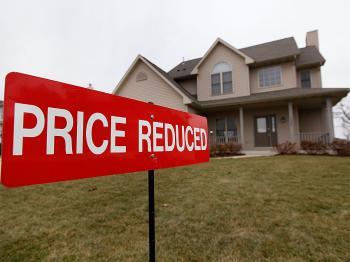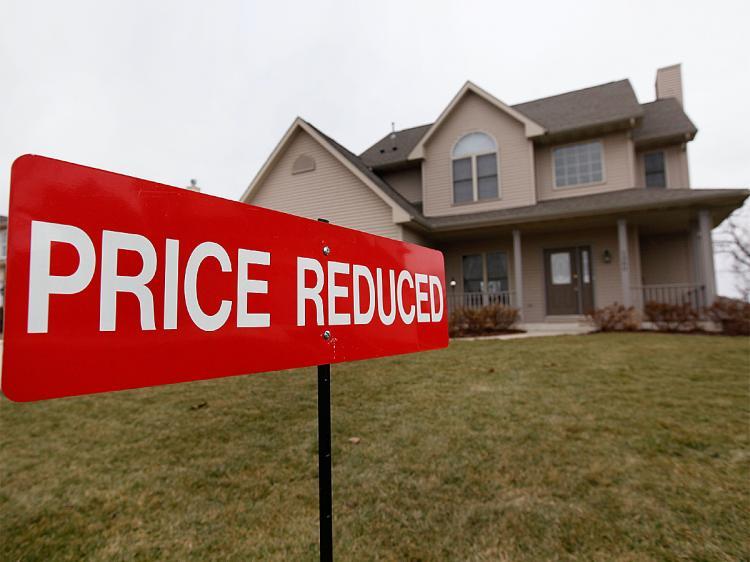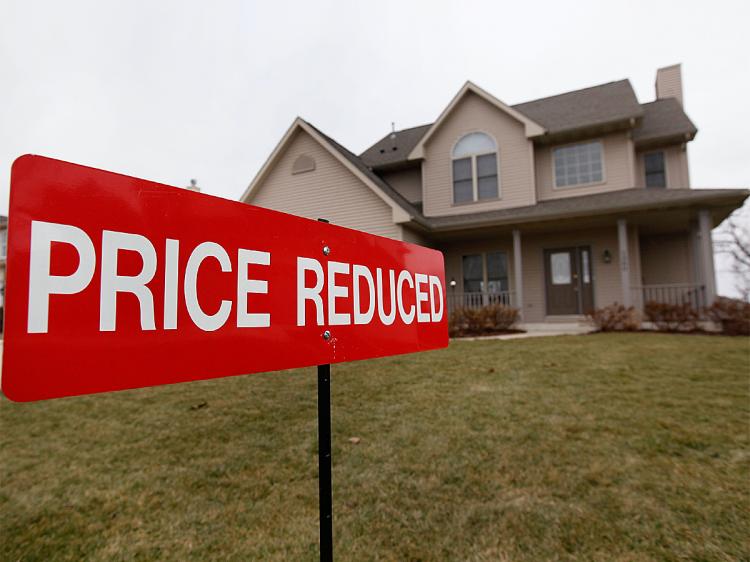NEW YORK—The federal government is ready to roll out another mortgage modification program—the Home Affordable Foreclosure Alternatives (HAFA)—the newest option for struggling homeowners to avoid foreclosure.
The baby brother of HAMP (Home Affordable Modification Program), HAFA has been created to focus on short selling a home and will launch April 5.
A short sale is where the homeowner and lender agree to sell the home for less than the value of the loan.
Via the program, borrowers are provided incentives that will help them take advantage of either a short sale, whereas the borrower and the mortgage servicer agree to sell the home for less than the value of the loan; or a deed-in-lieu of foreclosure, whereas the homeowner voluntarily gives the deed of the property to the servicer.
In simpler terms, HAFA aims to help people quickly sell their homes by giving them pre-approved short sales terms before listing the property. This includes a pre-negotiated listing price that the bank will accept. In a regular short sale the bank will not disclose what they will accept.
One advantage of HAFA will be for homeowners who live in states that have a recourse law. HAFA will not allow banks to go after the remaining loan shortfall after a short sale is complete—whereas in current recourse states this is possible.
“That’s the most attractive part of HAFA,” said Mark Brandemuehl of Motovo, a brokerage and listing site. “States in recourse will increase their volume of short sales and deeds in lieu.” California and Florida, two of the hardest hit states with foreclosures, are both non-recourse states. Brandemuehl predicts the HAFA program won’t have much impact in these states due to this.
Under HAFA, borrowers can also receive $1,500 for borrower relocation assistance. Investors and servicers can receive financial assistance through the program for administrative costs and processing fees.
In 2009, a record 2.8 million homes went into foreclosure, and the filings in 2010 are estimated to reach up to 3.5 million. Experts say that foreclosure activity will likely remain high until at least the end of 2012.
HAFA does not apply to loans with Fannie Mae or Freddie Mac.
Homeowners who go through the HAMP program but do not qualify will be run through the HAFA program.
The U.S. Treasury Department say they are taking the necessary steps to prevent short sale fraud under the HAFA program, officials told HousingWire.
The announcement came in response to coverage that reported lenders are building buffers to protect themselves from an anticipated rise in borrower fraud when HAFA launches.
Laurie Maggiano, director of policy at the Treasury’s Homeownership Preservation Office told Housing Wire that under HAFA, the borrower is required to sign a Short Sale Agreement and a sales contract asserting that the seller and buyer are conducting an arm’s length transaction and that they are unrelated by either family, marriage, or commercial enterprise.
The baby brother of HAMP (Home Affordable Modification Program), HAFA has been created to focus on short selling a home and will launch April 5.
A short sale is where the homeowner and lender agree to sell the home for less than the value of the loan.
Via the program, borrowers are provided incentives that will help them take advantage of either a short sale, whereas the borrower and the mortgage servicer agree to sell the home for less than the value of the loan; or a deed-in-lieu of foreclosure, whereas the homeowner voluntarily gives the deed of the property to the servicer.
In simpler terms, HAFA aims to help people quickly sell their homes by giving them pre-approved short sales terms before listing the property. This includes a pre-negotiated listing price that the bank will accept. In a regular short sale the bank will not disclose what they will accept.
One advantage of HAFA will be for homeowners who live in states that have a recourse law. HAFA will not allow banks to go after the remaining loan shortfall after a short sale is complete—whereas in current recourse states this is possible.
“That’s the most attractive part of HAFA,” said Mark Brandemuehl of Motovo, a brokerage and listing site. “States in recourse will increase their volume of short sales and deeds in lieu.” California and Florida, two of the hardest hit states with foreclosures, are both non-recourse states. Brandemuehl predicts the HAFA program won’t have much impact in these states due to this.
Under HAFA, borrowers can also receive $1,500 for borrower relocation assistance. Investors and servicers can receive financial assistance through the program for administrative costs and processing fees.
In 2009, a record 2.8 million homes went into foreclosure, and the filings in 2010 are estimated to reach up to 3.5 million. Experts say that foreclosure activity will likely remain high until at least the end of 2012.
HAFA does not apply to loans with Fannie Mae or Freddie Mac.
Homeowners who go through the HAMP program but do not qualify will be run through the HAFA program.
Short Sale Fraud
The U.S. Treasury Department say they are taking the necessary steps to prevent short sale fraud under the HAFA program, officials told HousingWire.
The announcement came in response to coverage that reported lenders are building buffers to protect themselves from an anticipated rise in borrower fraud when HAFA launches.
Laurie Maggiano, director of policy at the Treasury’s Homeownership Preservation Office told Housing Wire that under HAFA, the borrower is required to sign a Short Sale Agreement and a sales contract asserting that the seller and buyer are conducting an arm’s length transaction and that they are unrelated by either family, marriage, or commercial enterprise.







